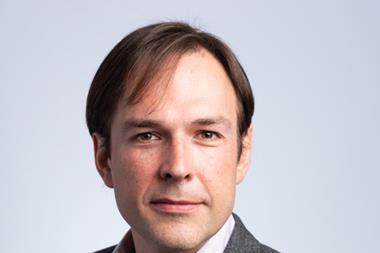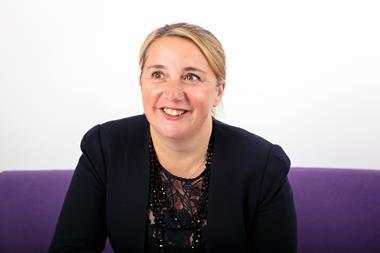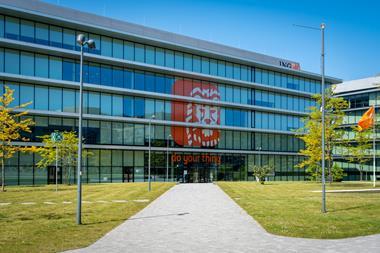Allianz Global Investors (AllianzGI) has entered into a strategic partnership with Deutsche Betriebsrenten Holding (DBR Holding) to help companies transfer pension obligations to an external pension management company.
The external pension management company is responsible for handling pension claims taken over with adequate financial resources, it was announced.
DBR Holding bears the risk of the company pensions, focusing on the long-term management of the transferred pension obligations.
AllianzGI role will be to step in to determine the necessary financing requirements, identifying longevity and capital market assumptions, and bringing in its capital investment know-how, it added.
The asset manager will ensure insolvency protection through its subsidiary Allianz Treuhand, the trustee for the outsourcing of second pillar’s pension obligations, earmarking assets available to fund pension obligations.
Thomas Bloch, managing director of DBR Holding, said: “Through the partnership with AllianzGI, for the first time a leading asset manager supports the model of the external pension [management] company and thus underlines a fundamental commitment to the development of this pension buyout solution in the German market.”
Dirk Popielas, co-managing director of DBR Holding, added: “With the cooperation of two strong partners, it is now possible for companies in Germany to place the old company pension commitments in safe hands. As a result, the companies have freedom to further develop their business models.”
Heiko Wunderlich, head of institutional business development for Germany and Austria at AllianzGI, said: “Companies have been transitioning from defined benefit to defined contribution plans for some time now, and AllianzGI has been a long-standing partner to many. Outsourcing existing pension obligations to a pension company goes one step further. Such pension buyouts are already widespread in Anglo-Saxon countries and are an established instrument for reducing the risks associated with pension obligations.”
Pension schemes’ funding ratios of DAX, MDAX companies continues to rise
The funding ratios of pension schemes of companies listed on the DAX and MDAX exchanges continued to grow in the first half of the year, despite volatile capital markets.
According to WTW’s German Pension Finance Watch for Q2, pension schemes of DAX companies recorded funding ratios of 83.3%, up from 79.7% at the end of 2022. The pension schemes of MDAX companies recorded funding ratios of 78.4%, up from 76.6% at the end of last year.
The pension obligations of DAX and MDAX companies have increased since the beginning of the year, by 1.3% and 1.7%, respectively, to €311.8bn and €56.5bn.
Pension assets have also shot up by 6% to €259.8bn for DAX company pension schemes, and by 4% to €44.2bn for MDAX schemes.
“After losses last year, almost all asset classes made gains in the first half of 2023. Stock markets in particular have picked up significantly. As a result, pension assets were able to recover from the low of the previous year and that benefits the funding level of the pension schemes,” said Hanne Borst, WTW’s head of retirement for Germany.
BaFin shows shortcomings on risk reporting
The financial supervisory authority BaFin has found shortcomings relating to the reporting of risks by Pensionskassen and Pensionsfonds.
The authority analysed risk reports of Institutions for Occupational Retirement Provision (IORPs), which had to be submitted for the first time in 2022.
It came to the conclusion that the overall quality of the reports is good, but around 80% of the Pensionskassen and Pensionsfonds have to make improvements.
BaFin sees room for improvement in the assessment of the overall financing requirement of schemes, particularly with regard to covering technical liabilities, on information about protection provided by sponsoring companies, and sustainability.
Swiss fund market’s volume shoots up
The Swiss fund market has recorded an asset volume of CHF1.37trn, up by 4.1% compared with the end of 2022, according to figures published by the Asset Management Association Switzerland (AMAS).
Returns contributed with CHF40.3bn, or 3%, to the positive first half of the year, while net new money inflows was up by just 1% to CHF13.7bn.
Year-to-date returns were driven by equity (6.8%) and bond (0.4%) funds, while money market (-1.9%), real estate (-2.2%), and alternative funds (-4.8%) recorded a negative performance in H1, according to the figures.
UBS Asset Management ranked first among asset managers in Switzerland with a market share of 25.1%, followed by Credit Suisse with 13.1%, Swisscanto 9.7% and BlackRock with 7.8%.
UBS will massively expand the market as a result of its Credit Suisse takeover, according to AMAS.
The latest digital edition of IPE’s magazine is now available

















